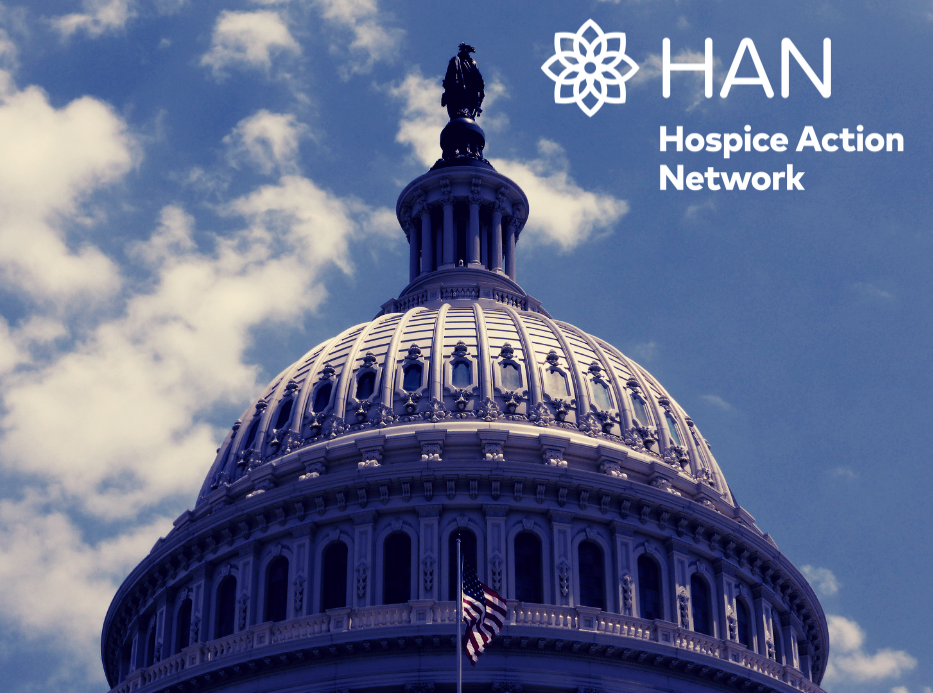PCHETA Reintroduced in the Senate!

GREAT NEWS hospice and palliative care advocates! Today, Senators Tammy Baldwin (D-WI) and Shelly Moore Capito (R-WV) reintroduced the Palliative Care and Hospice Education and Training Act (PCHETA) as S.2080. This bipartisan, bicameral legislation is endorsed by a broad coalition of healthcare organizations and has already received 243 cosponsors in the House.
If passed, PCHETA would enhance palliative care education, research, and awareness, establish palliative care and hospice education and training centers, and promote the career development of hospice and palliative care professionals to ensure that there is an equipped workforce prepared to manage the needs of the aging American population.
See below for NHPCO’s Press Release regarding PCHETA’s reintroduction in the Senate:
For Immediate Release:
June 10, 2019
NHPCO Applauds Senate Introduction of Bipartisan Legislation to Expand Palliative and Hospice Care Education and Access
Alexandria, VA – The National Hospice and Palliative Care Organization today commended the introduction of the Palliative Care & Hospice Education Training Act (PCHETA), a bipartisan bill to promote education and research in palliative and hospice care. This legislation is sponsored by Senator Shelley Moore Capito (WV) and Senator Tammy Baldwin (WI). PCHETA, H.R. 647, was introduced in the House in January and has garnered over 243 co-sponsors.
“Having served as a caregiver for my parents living with Alzheimer’s disease, I understand how important palliative and hospice care is and appreciate how much support and comfort it provides to patients and their families,” Senator Capito said. “In order to preserve access to this care, we have to strengthen training and education options for individuals working in these fields, and that’s what this bill would do. I am proud to join my colleague Senator Baldwin in reintroducing this legislation that will help so many facing serious illnesses.”
“I was raised by my maternal grandparents and later served as my grandmother’s primary caretaker as she grew older, so this issue is personal to me, and I want to make a difference for families experiencing serious health concerns,” said Senator Baldwin. “I’m proud to work across party lines and reintroduce the bipartisan Palliative Care and Hospice Education and Training Act with my colleague Senator Capito. We must do more to grow our health care workforce to safeguard and improve the quality of care for the growing number of patients with serious or life-threatening illnesses.”
Passage would represent a significant first step to protecting access to holistic palliative and hospice care for all Americans. The Palliative Care & Hospice Education Training Act would expand palliative care education programs by funding education centers and sponsoring fellowship programs, promote research in palliative and hospice care, and support academic palliative medicine.
“We applaud Senate leaders for recognizing the need to increase the ranks of palliative and hospice care professionals and ensure all Americans are able to access person-centered and integrated care,” noted Edo Banach, JD, President and CEO of NHPCO. “This bipartisan legislation would provide critical funding and resources to expand our palliative care workforce at a time when the number of individuals facing serious, advanced or life-limiting illness is rapidly growing. We’re calling on all Congressional leaders to rise to meet this challenge and support this important legislation,” Banach concluded.
Estimates indicate that without changes like those made in this legislation, the palliative care and hospice physician workforce will grow a little over one percent in the next 20 years. Meanwhile, in that same period, the number of people eligible for palliative care will increase by more than 20 percent. This projected workforce shortage is a stark reminder that along with our aging population comes the need to revisit Medicare policies and address how we will meet the needs our nation’s seniors– particularly when it comes to rules and regulations governing both palliative care and hospice care.
NHPCO is committed to working with the Administration and Congress to strengthen and make more transparent the tools and data needed to empower consumers when they are choosing a quality hospice and palliative care program.
Hospice and palliative care are both person-centered models of care that address patients’ physical, emotional, psychosocial, spiritual and familial needs. Both hospice and palliative care utilize interdisciplinary teams of providers who optimize quality of life by anticipating, preventing, and treating suffering.
To learn more about the My Hospice campaign, please visit the Hospice Action Network (HAN) website.
###
Media Contact:
Jon Radulovic
Vice President, Communications
Ph: 703-837-3139
jradulovic@nhpco.org

baixar vídeos
… [Trackback]
[…] Find More Info here on that Topic: hospiceactionnetwork.org/pcheta-reintroduced-in-the-senate/ […]
แทงบอล 4 ตังค์
… [Trackback]
[…] Find More Info here on that Topic: hospiceactionnetwork.org/pcheta-reintroduced-in-the-senate/ […]